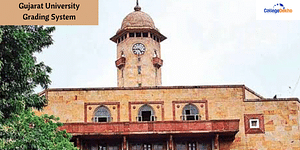D El Ed (Diploma in Elementary Education) Admissions 2024
D El Ed Admission Overview
Diploma in Elementary Education (D.El.Ed) admission in India is a crucial step for individuals aspiring to become primary school teachers. This program is designed to equip prospective educators with the necessary skills and knowledge to teach students at the elementary level. The admission process for D El Ed typically varies from state to state and institution to institution, but there are some common aspects to consider.
Candidates seeking D El Ed admission usually need to meet specific eligibility criteria, which may include completing 10+2 or equivalent. The admission process often involves an entrance examination or merit-based selection, followed by counseling rounds for seat allocation.
Various states have their own State Councils for Teacher Education (SCTE) or boards that govern D El Ed admissions. Aspiring teachers must keep a close eye on admission notifications, application deadlines, and eligibility requirements specific to their state.
D.El.Ed programs aim to nurture future educators, fostering their pedagogical skills and understanding of child psychology. Admission to these programs is an important step towards building a strong foundation in elementary education, which is essential for the development of the nation's youth.
Table of Contents
- D El Ed Admission Overview
- D El Ed Admission Highlights
- D El Ed Eligibility Criteria
- D El Ed Fees
- D El Ed Specialisations
- D El Ed Entrance Exams
- D El Ed Selection Process
- How to Apply for a D El Ed Course?
- Documents Required for D El Ed Course Admissions
- FAQs about Diploma in Elementary Education Admission Process
D El Ed Admission Highlights
Here are some crucial aspects of D El Ed (Diploma in Elementary Education) admissions in India presented in a table format:
Particulars | Description |
|---|---|
| Course Name | Diploma in Elementary Education (D El Ed) |
| Duration | Typically a 2-year full-time program |
| Eligibility Criteria | Varies by state/institution, but generally requires 10+2 or equivalent |
| Age Limit | Usually 18-35 years, with some age relaxations for reserved categories |
| Admission Process | Admission may be based on merit, entrance exam, or both |
| Common Entrance Exams | State-specific exams like UP DElEd, Bihar DElEd, etc. University-specific entrance exams like Jamia Millia Islamia DElEd Exam, GGSIPU CET, etc. |
| Application Period | Varies by state/ institution, but usually announced in spring/ summer |
| Application Mode | Online and sometimes offline applications |
| Application Fee | Varies, usually affordable for candidates |
| Seat Reservation | Reservations for SC/ ST/ OBC/ PwD categories as per government norms |
| Selection Criteria | Merit in qualifying exams (e.g., 10+2) Entrance exam scores - Counseling process |
| Curriculum | Covers pedagogy, child psychology, educational methods, and practical teaching experience |
| Medium of Instruction | Often in regional languages or the local language |
| Course Fee | Varies widely, with government institutions generally having lower fees. Course fee may range from Rs. 5000 to Rs 80,000 |
| Scholarships | Scholarships available for eligible candidates |
| Job Prospects | Opens opportunities for primary and elementary school teaching |
| Certification | Awarded a D.El.Ed certificate upon successful completion |
| Regulatory Body | NCTE (National Council for Teacher Education) sets guidelines |
Please note that the specific details, eligibility criteria, and admission procedures may vary from state to state and from one institution to another in India. Therefore, it's essential to check with the relevant authorities or institutions for the most accurate and up-to-date information regarding D.El.Ed admissions.
D El Ed Eligibility Criteria
The eligibility criteria for D.El.Ed (Diploma in Elementary Education) programs in India can vary depending on the state and institution offering the course. However, the following general eligibility criteria are usually taken into account:
Educational Qualifications: Candidates must have completed 10+2 (or its equivalent) from a recognized board or institution. This means you should have passed your 12th standard.
Minimum Percentage: While the specific percentage requirement may vary, many institutions and states require candidates to have a minimum percentage in their 10+2 examination. This minimum percentage may vary but is often around 50% for general category candidates. There might be some relaxation in percentage for reserved category candidates like SC, ST, OBC, and PwD.
Age Limit: Generally, candidates must be between 18 to 35 years of age. There can be relaxations for reserved category candidates as per government norms.
State-specific Requirements: Different states in India may have specific eligibility criteria, such as a requirement for candidates to have studied the regional language up to a certain level, or specific state-level entrance exams.
Reservation Policies: There are often reservations for candidates from Scheduled Castes (SC), Scheduled Tribes (ST), Other Backward Classes (OBC), and Persons with Disabilities (PwD) as per government regulations. The percentage of seats reserved may vary by state.
Nationality: In most cases, you should be an Indian citizen to be eligible for D El Ed admissions.
It's important to note that eligibility criteria can change, and they may differ from one institution or state to another. Therefore, it's advisable to check the specific eligibility requirements of the D El Ed program you are interested in, as well as any changes or updates in the eligibility criteria, by referring to the official admission notification or contacting the relevant authorities or institutions offering the course.
D El Ed Fees
The fees for D El Ed (Diploma in Elementary Education) programs in India can vary significantly depending on the type of institution (government or private) and the state in which the course is offered. Comparatively speaking, public institutions typically charge less than private ones. Here are some general guidelines:
Government Institutions: The fees for D El Ed programs in government institutions are typically more affordable. The fees may range from a few thousand rupees to around Rs. 10,000 to Rs. 30,000 for the entire program.
Private Institutions: Tuition costs at private universities are frequently greater. The fees can vary widely, and they may range from Rs. 20,000 to Rs. 1,00,000 or more for the entire D.El.Ed program. The actual fees depend on the reputation and location of the institution.
Scholarships: Many government and private institutions offer scholarships to eligible candidates, especially for those from economically disadvantaged backgrounds or belonging to specific categories, such as Scheduled Castes (SC), Scheduled Tribes (ST), and Other Backward Classes (OBC).
Additional Costs: In addition to tuition fees, students may need to budget for expenses related to textbooks, study materials, uniforms (if required), transportation, and living expenses if they are staying in a hostel or rented accommodation.
Fee Concessions: Some states may provide fee concessions or waivers to deserving candidates based on their performance and socio-economic background.
It's important to note that the fees can change from year to year, so it's crucial to check with the specific institution where you plan to apply for D.El.Ed for the most up-to-date information regarding fees and any available scholarships or fee concessions. Additionally, consider checking the official admission notification for the program to get accurate details about the fees.
D El Ed Specialisations
D El Ed (Diploma in Elementary Education) programs in India typically do not have formal specialisations like undergraduate or postgraduate degree programs. D.El.Ed is a diploma program designed to prepare individuals for elementary education, and the curriculum generally covers a wide range of subjects related to primary education and teaching methods.
However, within the D El Ed program, you can often choose elective subjects or areas of focus based on your interests and career goals. These electives may not be formal specialisations but can provide a certain level of customization to your education. Some areas you might be able to explore within a D.El.Ed program include:
Teaching Subjects: You may be able to choose elective subjects that align with your teaching preferences, such as mathematics, science, social studies, or language instruction.
Child Development: Some programs offer courses that delve deeper into child psychology and development, helping you better understand and teach children of different age groups.
Inclusive Education: Courses related to inclusive education may be available, which cover teaching methods for children with special needs or learning disabilities.
Pedagogical Approaches: You might have the opportunity to explore various teaching methodologies and strategies.
Rural or Urban Education: Depending on the location of the institution, you could focus on teaching in rural or urban settings, each of which comes with its unique challenges and opportunities.
Language Specialization: If you plan to teach in a multilingual or diverse linguistic area, you might choose to study a particular language more in-depth.
Please keep in mind that the availability of elective subjects or areas of focus can vary from one institution to another. Moreover, developments may have occurred since my last knowledge update, so I recommend checking the official websites of the institutions where you plan to apply for D El Ed to see if they offer any specific areas of emphasis or electives within the program.
D El Ed Entrance Exams
D El Ed (Diploma in Elementary Education) admissions in India typically involve various entrance exams, including state-level exams and university-specific exams. These exams help institutions assess the knowledge and aptitude of candidates applying for D.El.Ed programs. Here are some of the prominent D El Ed entrance exams in India:
State-Level D.El.Ed Entrance Exams:
Uttar Pradesh D El Ed Entrance Exam (UP D El Ed Entrance Exam): Conducted by the Uttar Pradesh Basic Education Board, this exam is for admission to D.El.Ed programs in the state of Uttar Pradesh.
Bihar D El Ed Entrance Test: Conducted by the Bihar School Examination Board, this exam is for D.El.Ed admissions in Bihar.
Haryana D El Ed Entrance Test: Haryana Board of School Education conducts this entrance exam for D.El.Ed programs in Haryana.
Rajasthan Pre-D El Ed Entrance Test: This test is conducted for admission to D.El.Ed programs in Rajasthan.
Delhi District Institute of Education (DIET) D El Ed Entrance Exam: Delhi conducts its own entrance exam for D.El.Ed admissions in government DIET colleges.
West Bengal Primary TET (Teachers Eligibility Test): While not an entrance exam in the traditional sense, this test qualified candidates for admission to D El Ed programs in West Bengal.
Jharkhand DElEd Entrance Exam: This is the entrance exam for D.El.Ed programs in Jharkhand.
University-Specific D.El.Ed Entrance Exams:
Jamia Millia Islamia (JMI) D El Ed Entrance Test: JMI conducts its own entrance test for D.El.Ed admissions.
IGNOU D.El.Ed Entrance Exam: Indira Gandhi National Open University (IGNOU) conducts an entrance test for its D El Ed program.
Punjab University D El Ed Entrance Exam: Panjab University offers a D.El.Ed program and conducts its own entrance exam for admission.
Kurukshetra University D El Ed Entrance Test: Kurukshetra University in Haryana conducts an entrance test for its D.El.Ed program.
Please note that the names, dates, and eligibility criteria for these exams can change, so it's essential to visit the official websites of the respective examination authorities and institutions for the most up-to-date information about D El Ed entrance exams in India. Additionally, the availability of state-level and university-specific exams can vary depending on the region and institution.
D El Ed Entrance Exams Schedule
The schedule for top D.El.Ed entrance exams in India are as follows:
| Entrance Exam | Exam Date |
|---|---|
| UP BTC (D El Ed) Entrance Exam | To Be Announced |
| Jamia Millia Islamia (JMI) D El Ed Entrance Test | May 2024 (tentatively) |
| Jharkhand DElEd Entrance Exam | April 2024 (tentatively) |
| IGNOU D.El.Ed Entrance Exam | To Be Announced |
D El Ed Entrance Exams Syllabus
The syllabus for D El Ed (Diploma in Elementary Education) entrance exams in India can vary depending on the conducting authority and the specific state or institution offering the program. However, the syllabus generally includes subjects and topics that test a candidate's knowledge and aptitude in areas related to elementary education and teaching. Below is a broad overview of the typical syllabus for D.El.Ed entrance exams:
General Knowledge and Current Affairs:
Current events and developments in India and the world.
General awareness of history, geography, and culture.
Language Proficiency:
Proficiency in English or the regional language.
Comprehension, vocabulary, grammar, and writing skills.
Child Development and Pedagogy:
Understanding child development and psychology.
Learning theories and child-centered teaching methods.
Assessment and evaluation techniques.
Inclusive education and special needs education.
Teaching Aptitude:
Knowledge of teaching-learning processes.
Classroom management and discipline.
Educational psychology.
Teaching methods and strategies.
Mathematics (up to Class 10 level):
Number systems, arithmetic, and algebra.
Geometry and mensuration.
Data interpretation and statistics.
Science (up to Class 10 level):
Physics, chemistry, and biology basics.
Environmental science.
Social Studies (up to Class 10 level):
History, geography, and civics.
Important events and movements in India's history.
Reasoning and Mental Ability:
Analytical and logical reasoning.
Pattern recognition, puzzles, and problem-solving.
Numerical and Mathematical Ability:
Basic mathematical operations, percentages, and averages.
Data interpretation and quantitative aptitude.
Language (For Language Teachers):
Proficiency in the chosen language.
Reading, writing, and comprehension skills in that language.
Please note that the specific topics and their depth may vary from one entrance exam to another. It's essential to refer to the official notification and syllabus provided by the examination conducting authority for the D El Ed entrance exam you plan to appear for. Additionally, the syllabus for university-specific exams may differ, so it's recommended to check with the respective universities for their specific syllabus details.
D El Ed Entrance Exam Quick Preparation Tips
Here are some unique yet relevant quick preparation tips for D El Ed entrance exams:
Interactive Learning: Instead of just reading textbooks, engage in interactive learning. Create flashcards, participate in group discussions, or teach the material to someone else. Teaching what you've learned can reinforce your understanding.
Real-World Application: Relate the concepts to real-life scenarios. For example, connect pedagogical theories to practical classroom situations you may have observed or experienced.
Visual Aids: Use visual aids and mind maps to help you remember key points. Visual representations can make complex topics easier to understand.
Teaching Simulations: Simulate teaching scenarios by practicing in front of a mirror or recording yourself. This can help improve your teaching skills, especially for the pedagogy and teaching aptitude sections.
Audio Resources: Listen to educational podcasts or recordings related to child development, teaching methods, or educational psychology. This can be a passive but effective way to absorb knowledge.
Group Study with Diverse Perspectives: Study in a group with friends who have diverse knowledge and perspectives. Discussing topics from different angles can enhance your understanding and broaden your knowledge.
Mindfulness and Stress Management: Incorporate mindfulness and stress management techniques into your study routine. Managing exam-related stress is essential for effective learning.
Case Studies: Analyze case studies in the field of education. Discuss the challenges and solutions in these cases to better understand the practical aspects of teaching.
Teaching Demonstrations: If possible, participate in teaching demonstrations at local schools or institutions. Practical experience in teaching can provide you with valuable insights and confidence.
Time Management Games: Use time management games or apps to practice managing your time efficiently during the exam. These can help improve your speed and accuracy in answering questions.
Creative Study Techniques: Incorporate creative techniques like drawing, storytelling, or creating mnemonic devices to remember key concepts. These techniques can improve learning engagement.
Regular Self-Assessment: Periodically assess your own understanding by taking mock tests or quizzes. Self-assessment can help identify weak areas that need improvement.
D El Ed Selection Process
The selection process for D.El.Ed (Diploma in Elementary Education) programs in India typically involves several stages, and the specific process can vary from one state or institution to another. However, here's a general overview of the selection process:
Application Form: The process usually begins with the release of D El Ed admission notifications by respective institutions or state education departments. Candidates need to fill out the application forms within the specified period. This involves providing personal details, educational qualifications, and other required information. The application fee, if any, must also be paid during this stage.
Eligibility Check: After the submission of application forms, there is an eligibility verification process. Candidates' educational qualifications, age, and other criteria are assessed to ensure they meet the prerequisites.
Entrance Examination (if applicable): Some institutions or states conduct entrance exams for D El Ed admissions. The format and subjects covered in the entrance exam can vary. Candidates must prepare for and perform well in this exam to qualify for further rounds.
Merit List: For programs that conduct entrance exams, a merit list is prepared based on candidates' performance in the exam. Those who score above a certain cutoff are shortlisted for the next stage. For programs without entrance exams, selection may be based solely on academic merit.
Counselling and Document Verification: Shortlisted candidates are called for counselling sessions. During counselling, candidates can choose their preferred colleges or institutes based on their ranks and availability of seats. They must also bring all required documents for verification, such as educational certificates, proof of identity, and category certificates (if applicable).
Seat Allotment: After the counselling process, seats are allocated to candidates based on their preferences, merit, and the availability of seats in the chosen colleges.
Admission Fee Payment: Candidates who are allotted seats need to pay the admission fee to secure their place in the D El Ed program. The cost can differ from one institution to the next.
Commencement of Classes: Once the admission formalities are completed, candidates can start attending classes for the D.El.Ed program. Normally, the program lasts for two years.
It's essential to note that the selection process may differ from state to state and from one institution to another. Additionally, some D El Ed programs may not have entrance exams, relying solely on merit-based admissions. Therefore, it's crucial to refer to the specific admission notifications and guidelines provided by the institution or state in which you plan to apply for D.El.Ed to get accurate and up-to-date information regarding the selection process.
How to Apply for a D El Ed Course?
To apply for a D El Ed (Diploma in Elementary Education) course in India, you should follow these general steps. Keep in mind that the specific application process may vary from one state or institution to another, so it's important to refer to the official admission notification and guidelines provided by the particular institution or state where you intend to apply. Here are the general steps for the application process:
Check Eligibility: Make sure you meet the requirements outlined in the admission notification before submitting an application. Common criteria include having completed 10+2 or its equivalent and being within the age limit.
Research Institutions: Identify the institutions or states where you want to pursue the D.El.Ed course. You can check the official websites of these institutions or the state education department for information about the admission process and application forms.
Obtain Application Form: The application forms for D El Ed courses are typically available on the official website of the respective institution or state. Download the application form and the information brochure (if available).
Fill Out the Application Form: Give the application form your careful attention and fill it out completely and accurately. Provide details such as your name, contact information, educational qualifications, and any other required data. Pay attention to the instructions provided in the information brochure.
Attach Documents: Gather the necessary documents, including photocopies of your educational certificates, identity proof, age proof, and category certificate (if applicable). Ensure that you have both originals and photocopies of these documents.
Pay Application Fee: If there is an application fee, pay it as specified in the admission notification. The payment can often be made through a bank challan, online payment, or a demand draft, depending on the instructions provided.
Submit Application: Submit the completed application form, along with the required documents and proof of payment, to the designated application submission centre or address. This can often be done in person or by post, as specified in the admission notification.
Track Application Status: Many institutions provide a facility to track the status of your application. Check the official website for updates regarding the status of your application, such as when it has been received and processed.
Note: Make sure to carefully follow the instructions provided in the admission notification, and stay updated with the institution's or state's official website for any changes or updates in the application process.
Documents Required for D El Ed Course Admissions
When applying for a D El Ed (Diploma in Elementary Education) course in India, you will typically need to provide various documents as part of the admission process. The specific documents required can vary from one institution to another and may depend on the admission criteria established by the state or institution. However, here is a list of commonly required documents for D.El.Ed course admissions:
10th Mark Sheet and Certificate: This document serves as proof of your completion of the 10th standard (Class X) and includes your date of birth.
12th Mark Sheet and Certificate: The 12th standard (Class XII) mark sheet and certificate are essential to demonstrate your educational qualifications.
Transfer Certificate (TC) or Migration Certificate: A TC from your previous educational institution may be required. If you are coming from a different state or education board, a migration certificate might be necessary.
Character Certificate: This certificate, often issued by your previous school or college, attests to your good conduct and character.
Category Certificate (if applicable): If you belong to a reserved category (e.g., SC/ ST/ OBC), you may need to provide a valid category or caste certificate as per the guidelines of the state or institution.
Domicile Certificate: Some states or institutions require a domicile certificate to establish your residency in that specific state or region.
Photo ID: A valid government-issued photo identification document, such as an Aadhar card, passport, or voter ID, is typically required for identity verification.
Passport-size Photographs: Recent passport-sized photographs are often needed for various application forms and documents.
Admit Card and Rank Card (if applicable): If you have appeared for an entrance exam, the admit card and rank card may be required for the admission process.
Income Certificate (if applicable): Some institutions or states require an income certificate to determine eligibility for scholarships or fee concessions.
Medical Certificate: A medical certificate may be needed to confirm that you are medically fit to pursue the course.
Anti-Ragging Affidavit: You might be required to submit an anti-ragging affidavit to ensure that you are aware of and committed to preventing ragging on the campus.
Any Other Specific Documents: Some institutions or states may request additional documents, so it's important to carefully review the admission notification and guidelines for any specific requirements.
Please note that the list of required documents can vary depending on the admission guidelines and policies of the institution and state where you are applying for D El Ed. It's essential to refer to the official admission notification and website of the specific institution or state to get the most up-to-date and accurate information regarding the required documents for D.El.Ed course admissions.
FAQs about Diploma in Elementary Education Admission Process
What is the total time offered to complete D El Ed?
The total time offered to complete a D El Ed (Diploma in Elementary Education) program in India is typically 2 years. This two-year program focuses on preparing individuals for teaching at the elementary education level and includes coursework and practical training in teaching methodologies.
Can I get admission in D El Ed after 12th?
Yes, you can get admission in D.El.Ed (Diploma in Elementary Education) after completing your 12th standard. D El Ed programs are designed for students who have completed their 12th grade and wish to pursue a career in elementary education and teaching. Eligibility criteria may vary, so check specific admission requirements.
Why is D El Ed good to pursue?
D El Ed (Diploma in Elementary Education) is a valuable course as it equips individuals with the essential skills and knowledge needed to become effective elementary school teachers. It focuses on child development, pedagogy, and practical teaching experience, making it an ideal choice for those passionate about shaping young minds and contributing to the future of education.
What is the highest salary for D El Ed graduates?
The highest salary for D.El.Ed (Diploma in Elementary Education) graduates can vary depending on factors such as location, type of school, and years of experience. Generally, D El Ed graduates can earn salaries ranging from Rs. 2,50,000 to Rs. 5,00,000 per annum, with potential for higher earnings as they gain more experience and take on leadership roles.
Can I do D El Ed without any entrance exam?
Yes, it is possible to pursue a D El Ed (Diploma in Elementary Education) course without an entrance exam in some cases. Many D.El.Ed programs in India admit students based on merit from their 10+2 (Class XII) examination. Admission criteria may vary by institution or state, so it's advisable to check specific admission requirements.
What is the minimum percentage of marks required for D El Ed admission?
The minimum percentage of marks required for D El Ed (Diploma in Elementary Education) admission in India can vary by institution and state. However, a common requirement is around 50% in the 10+2 (or equivalent) examination. Some institutions may have a slightly lower percentage requirement for reserved category candidates like SC, ST, and OBC.
Can I apply for D El Ed programs in multiple universities simultaneously?
In most cases, candidates can apply for D.El.Ed programs in multiple universities simultaneously, but it's crucial to check the specific admission guidelines of each university and ensure they allow multiple applications. However, candidates should carefully consider the logistics and preferences, including the selection process and course availability, before applying to multiple institutions.
What can I do to improve my chances of D El Ed admission if my undergraduate grades are low?
To enhance your chances of D.El.Ed admission with low undergraduate grades, focus on excelling in the entrance exam and showcasing your passion for teaching. Strong performance in the exam, a well-prepared personal statement, and relevant teaching experience or certifications can compensate for lower undergraduate marks.
Are there age restrictions for D El Ed admission?
Yes, there are age restrictions for D.El.Ed (Diploma in Elementary Education) admission in India. While the specific age limits can vary by state and institution, candidates typically need to be between 18 and 35 years old to be eligible for D El Ed programs, with some relaxation for reserved categories.
Can I do D El Ed through distance mode?
D El Ed (Diploma in Elementary Education) courses are typically offered in regular, full-time modes, and not commonly available through distance education or correspondence. However, the availability of such programs may vary by institution or state, so it's advisable to check with specific institutions for the most up-to-date information regarding distance D.El.Ed programs.
Popular Courses
- Courses
- Diploma in Elementary Education
- Admission Process


















